SIGN LANGUAGEA PAINTERS NOTEBOOKJOHN S. PAUL NEW YORK CITY THREEROOMSPRESS.COM Sign Language: A Painters Notebook
NEW YORK CITY THREEROOMSPRESS.COM Sign Language: A Painters Notebook
Copyright 2014 by John S. Paul All rights reserved. No part of this book may be reproduced without permission of the author or publisher, except for brief quotes for review purposes. For permissions, please write to . First Edition ISBN: 978-1-941110-05-8 ebook
Library of Congress Control Number: 2014937999 COVER PHOTO:
John S.
Paul
johnpaulpaintings.com COVER AND INTERIOR DESIGN:
KG Design International
katgeorges.com PUBLISHED BY:
Three Rooms Press, New York, NY
threeroomspress.com
facebook.com/threeroomspress DISTRIBUTED BY:
PGW/Perseus
pgw.com To Dan Gillham
and the
Golden GirlsWISH YOU WERE HEREAn Introduction ALTHOUGH WHAT FOLLOWS IS largely a collection of poems, it is important to keep in mind from the outset that John S. Paul is primarily a painter. A painter of lush narrative canvases, portrait sketches, and genre scenes, as well as a painter of billboards and movie scenery, and with language, he is a limner of a life lived in New York City. Few painters have the range that Paul has, and fewer still possess the economy of language combined with the rich visual textures that give his poetry the feel of a documentary. One is tempted to compare his work to Dos Passos, or maybe Ferlinghetti, while at the same time the cinematic drama and pathos of Hertzog comes to mind. That these stories are collected under the title Sign Language has its own sense of poetry.
Sign language uses gesture and physicality to replace speech and sound. Much like semaphore, it is a language that abstracts the spoken word. In essence, what joins together the work of Paul is his use of image and written word; the narratives of his paintings are often oblique, but his poetry nails down small momentstiny gestureswith precision. Music is a factor in Pauls work. When he talks about it he illuminates a great deal about his philosophy of art. Music? Thats a hobby, and if it ever gets into my work like it did for Romare Bearden, that would be natural.
To play jazz means to wade or swim in a stream of heroes. There are no more exemplary artists than the players and composers of modern music. If you know a tune well enough to improvise, you have an inner reference and calm much like dreaming. Take that to the next level? Perform with others? You have to want that like the footballer wants to score a goal. Its another language structurefree but with rules. You need to know the rules.
Ill always be a beginner as a tenor sax player, so I concentrate on tone and sound. Tone and sound, like texture or light are the poetry of the abstract. Chance, accident, happening to be in the wrong place at the wrong time: these are the things that make life interesting. Cormac McCarthy wrote, If it doesnt concern life and death, its not interesting. Pauls poems, such as Cubism Today, a meditation on a lunch break on a busy workday, lend some credibility to that notion. For what are lives lived, or measured by, if not by hundreds of bowls of mussels, thousands of cigarettes, countless glasses of wine, untold empty Bud bottles, and uncountable sandwiches eaten while leaning against a scaffold on a hot sidewalk? Paul documents the variety to be found in the overlooked, and this is what a painter does.
His narratives are simple, concise stories from a man who practices his art both in public (sign writing) and private (painting), all the while keeping track of the moments when these activities happened. Socrates said, The unexamined life is not worth living, but an unlived life is not worth examining. Paul has managed a high wire act, both exploring and documenting his existence with grace and poetry, and, like a good tightrope walker, has done it without a net. If these poems make that act look easy, it is because he has done it so well. Bradley RubensteinBradley Rubenstein is a painter and writer who lives and works in Brooklyn, New York.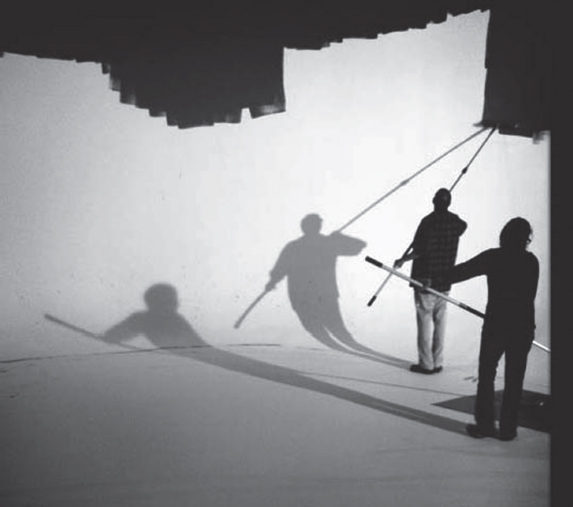 HYBRID I cant say what its like except if you were not a proper trained electrician and wanted to splice outlet wires into an electric box in the basement of a city tower without yellow kitchen gloves, you would run the risk of shutting down the building lights, the elevator, and maybe cook your aorta like a boiled beef heart. The typewriter is a safer tool, the only danger is time lost not found.
HYBRID I cant say what its like except if you were not a proper trained electrician and wanted to splice outlet wires into an electric box in the basement of a city tower without yellow kitchen gloves, you would run the risk of shutting down the building lights, the elevator, and maybe cook your aorta like a boiled beef heart. The typewriter is a safer tool, the only danger is time lost not found.
But lets not overlook how our friendly botanist succeeds with a new strain grafting a hybrid to magnolia trees, that now enjoy his name. 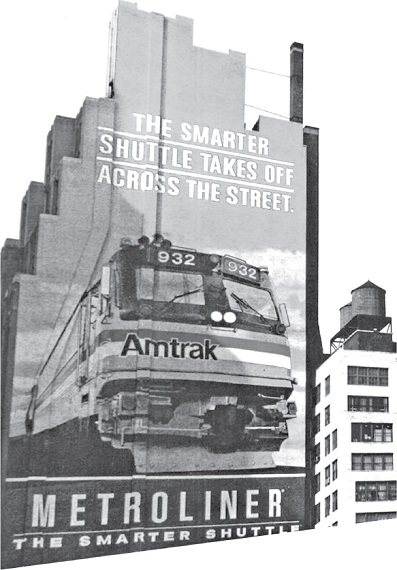 COURTSHIP AND THE TOWER A young woman was dragging her suitcase in the Maida Vale coaxing it, an obstinate thing. I offered help for the short walk to Paddington my service a smile and a gallant farewell. There was a phone number collected but no further assistance in those candied days. I knew who I was, who I came for, how I landed for her, watching the rumps of the Royal Horses parading near Buckingham one morning late, having missed the punctual first plane. Love was a bedsit with our freedom.
COURTSHIP AND THE TOWER A young woman was dragging her suitcase in the Maida Vale coaxing it, an obstinate thing. I offered help for the short walk to Paddington my service a smile and a gallant farewell. There was a phone number collected but no further assistance in those candied days. I knew who I was, who I came for, how I landed for her, watching the rumps of the Royal Horses parading near Buckingham one morning late, having missed the punctual first plane. Love was a bedsit with our freedom.
We lived wholly on bread and buttergood cheese slept on clean lavender sheets. The years arrived on time as my own suitcase became filled with old clothes stained with warpaintmy hair shirts of battle. A young man travels light. I could be exalted in winter carried high on winches without ceremony. I arrived at this tower of rusty plumbing and cooking smells. Later I found my feet, tethered in harness in a rough brotherhooda new man! The tower was our jokefearfully funny as if we had taken a grim oathdanger just a step away.
The wind had keys to a string of towers like these and in February we swung down the side to cover our asses. On warmer days we saw the dirty January ice melt and puddle into watercolor. Intact we floated in the updrafts of fried foods over 34th Street as I laughed and painted, my helper leaning on the rail, watching the girls crossing streets and I too took a glance at the bright show below. BREAKFAST ON MARS
(THE OUTDOORS REVISITED) 7:30 sharp, the gates roll up the world outdoors is getting latewe spy the weather with foxy eyesspeculate like thieves against the sun. Its the nineteenth hole in golf that keeps his mind from disarray. Position keyJoe would say be careful but not too careful.
Would-be child of paradise blessed with wife and child join the fray of painters, paint Outdoors! On the roof facing the highway stands my blank canvas framed by iron on stiltsjacked into the sky old as hills. The pay is good I revel in the blue collar milkman mailman lifewandering the cityhome for dinner Wonder Bread on the table Bud at the bar. 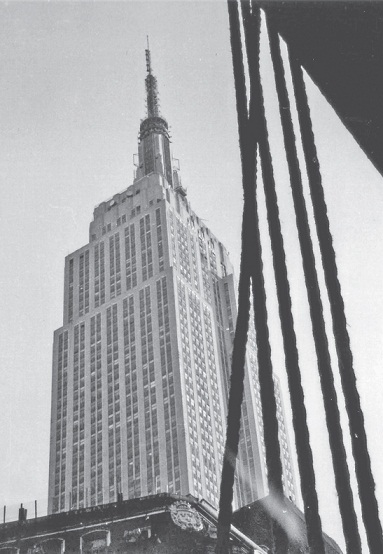 That factory went belly up from three shifts to ghost but we kept the signs on top remembering the heyday where a hundred men punched in to run the presses and lathes, the din designed to hurt your head endure the sin of boots and grease no bromide for the night shift their footsteps now a hollow echo. We climb those stairs to do our work, haul up ladders coils of block and fall the oiled manila rope with cactus spines the rainbow in gallon pails. And when we reach the top, we take our time among the pigeon coops the giant latticework of the gas tanks, loiter like felons, pose and smoke like pimps nurse our coffee and hold off for a minute more, enjoy the shade and air then think belatedlylook out! Today at lunchon this very savage roof maybe Joe will come, himself! Our early breakfast feeds the plan to mount the big white sign I dwell inside a joke of how to show in paint that pleasure comes from something you should buy its cold, its hot, its what you need to be a man or how a lady wants to shape her busy day, or be assured you truly care. The letters must be level crisp.
That factory went belly up from three shifts to ghost but we kept the signs on top remembering the heyday where a hundred men punched in to run the presses and lathes, the din designed to hurt your head endure the sin of boots and grease no bromide for the night shift their footsteps now a hollow echo. We climb those stairs to do our work, haul up ladders coils of block and fall the oiled manila rope with cactus spines the rainbow in gallon pails. And when we reach the top, we take our time among the pigeon coops the giant latticework of the gas tanks, loiter like felons, pose and smoke like pimps nurse our coffee and hold off for a minute more, enjoy the shade and air then think belatedlylook out! Today at lunchon this very savage roof maybe Joe will come, himself! Our early breakfast feeds the plan to mount the big white sign I dwell inside a joke of how to show in paint that pleasure comes from something you should buy its cold, its hot, its what you need to be a man or how a lady wants to shape her busy day, or be assured you truly care. The letters must be level crisp.
Next page
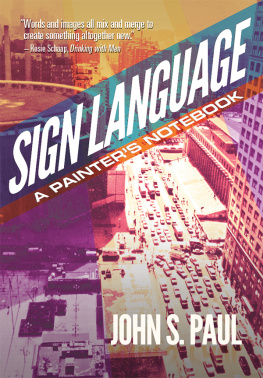

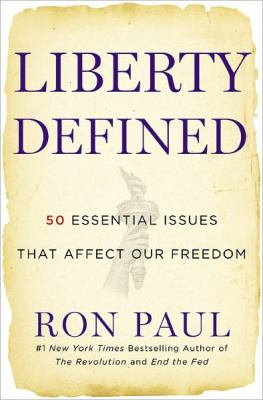
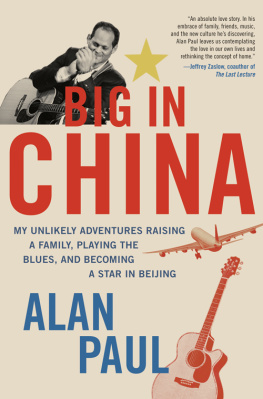
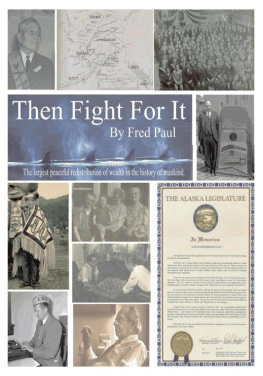
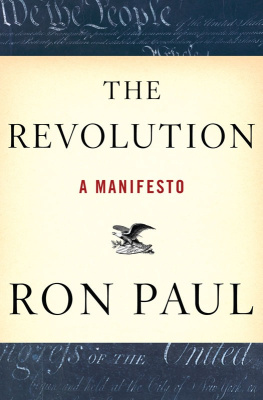









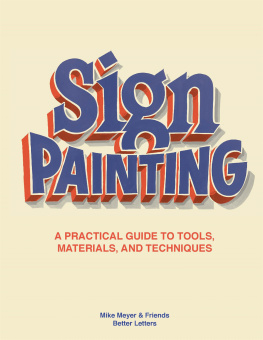
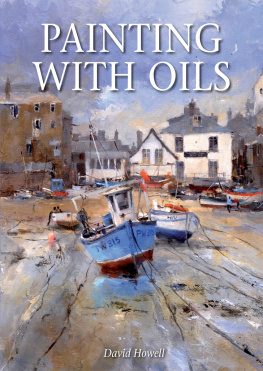
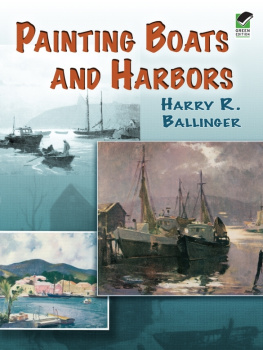
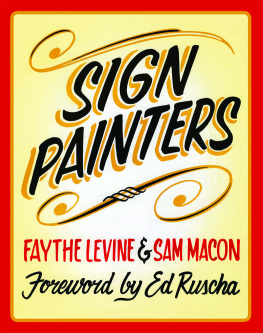
 NEW YORK CITY THREEROOMSPRESS.COM Sign Language: A Painters Notebook
NEW YORK CITY THREEROOMSPRESS.COM Sign Language: A Painters Notebook HYBRID I cant say what its like except if you were not a proper trained electrician and wanted to splice outlet wires into an electric box in the basement of a city tower without yellow kitchen gloves, you would run the risk of shutting down the building lights, the elevator, and maybe cook your aorta like a boiled beef heart. The typewriter is a safer tool, the only danger is time lost not found.
HYBRID I cant say what its like except if you were not a proper trained electrician and wanted to splice outlet wires into an electric box in the basement of a city tower without yellow kitchen gloves, you would run the risk of shutting down the building lights, the elevator, and maybe cook your aorta like a boiled beef heart. The typewriter is a safer tool, the only danger is time lost not found. COURTSHIP AND THE TOWER A young woman was dragging her suitcase in the Maida Vale coaxing it, an obstinate thing. I offered help for the short walk to Paddington my service a smile and a gallant farewell. There was a phone number collected but no further assistance in those candied days. I knew who I was, who I came for, how I landed for her, watching the rumps of the Royal Horses parading near Buckingham one morning late, having missed the punctual first plane. Love was a bedsit with our freedom.
COURTSHIP AND THE TOWER A young woman was dragging her suitcase in the Maida Vale coaxing it, an obstinate thing. I offered help for the short walk to Paddington my service a smile and a gallant farewell. There was a phone number collected but no further assistance in those candied days. I knew who I was, who I came for, how I landed for her, watching the rumps of the Royal Horses parading near Buckingham one morning late, having missed the punctual first plane. Love was a bedsit with our freedom. That factory went belly up from three shifts to ghost but we kept the signs on top remembering the heyday where a hundred men punched in to run the presses and lathes, the din designed to hurt your head endure the sin of boots and grease no bromide for the night shift their footsteps now a hollow echo. We climb those stairs to do our work, haul up ladders coils of block and fall the oiled manila rope with cactus spines the rainbow in gallon pails. And when we reach the top, we take our time among the pigeon coops the giant latticework of the gas tanks, loiter like felons, pose and smoke like pimps nurse our coffee and hold off for a minute more, enjoy the shade and air then think belatedlylook out! Today at lunchon this very savage roof maybe Joe will come, himself! Our early breakfast feeds the plan to mount the big white sign I dwell inside a joke of how to show in paint that pleasure comes from something you should buy its cold, its hot, its what you need to be a man or how a lady wants to shape her busy day, or be assured you truly care. The letters must be level crisp.
That factory went belly up from three shifts to ghost but we kept the signs on top remembering the heyday where a hundred men punched in to run the presses and lathes, the din designed to hurt your head endure the sin of boots and grease no bromide for the night shift their footsteps now a hollow echo. We climb those stairs to do our work, haul up ladders coils of block and fall the oiled manila rope with cactus spines the rainbow in gallon pails. And when we reach the top, we take our time among the pigeon coops the giant latticework of the gas tanks, loiter like felons, pose and smoke like pimps nurse our coffee and hold off for a minute more, enjoy the shade and air then think belatedlylook out! Today at lunchon this very savage roof maybe Joe will come, himself! Our early breakfast feeds the plan to mount the big white sign I dwell inside a joke of how to show in paint that pleasure comes from something you should buy its cold, its hot, its what you need to be a man or how a lady wants to shape her busy day, or be assured you truly care. The letters must be level crisp.